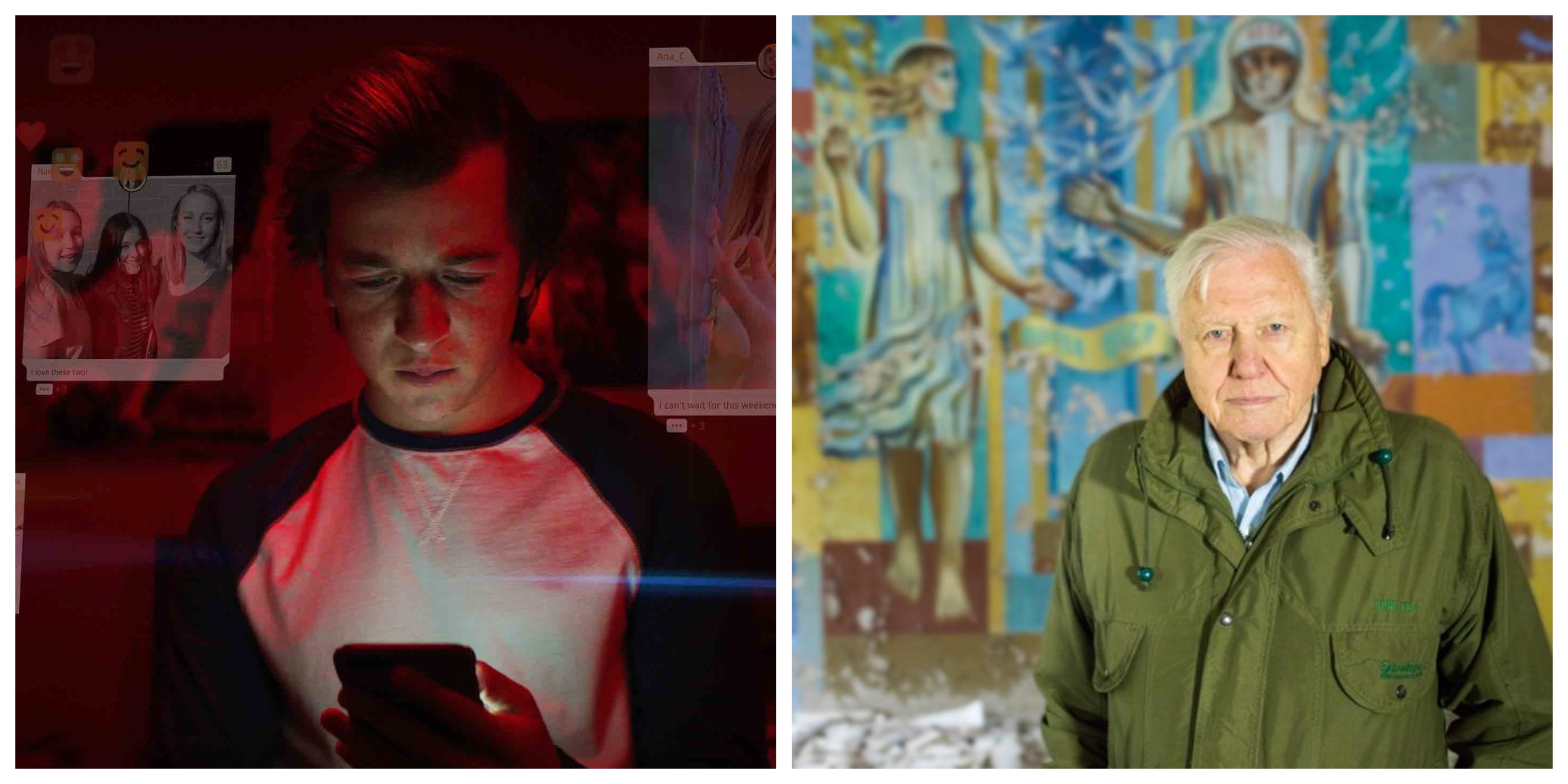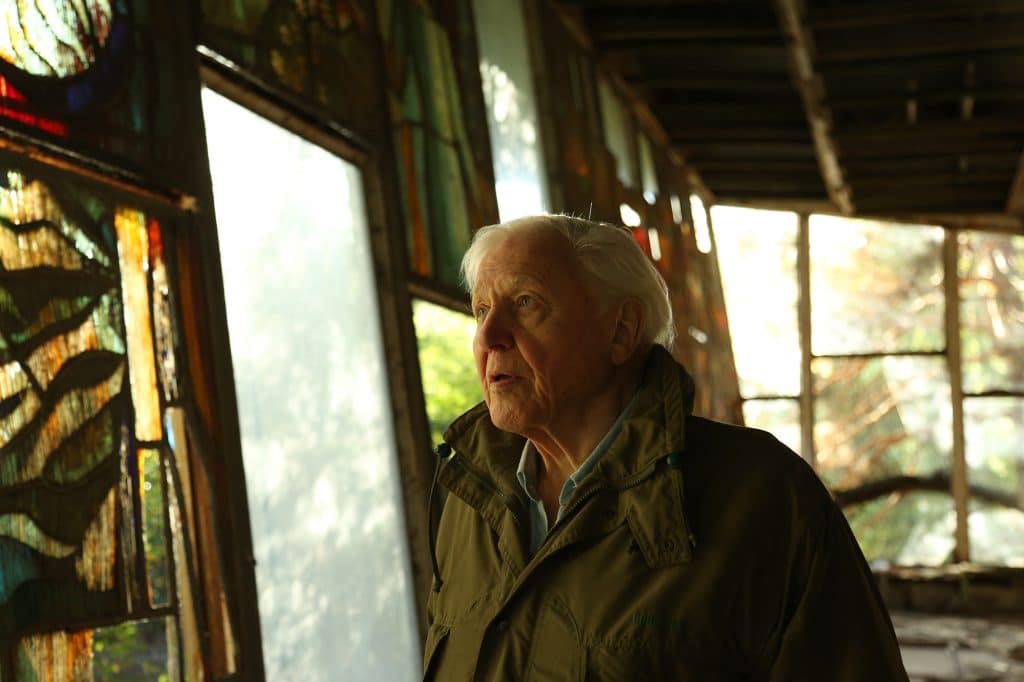
As original film programming expands on Netflix with remarkable speed, two new documentaries offer high-profile looks at films that otherwise might get missed.
The Social Dilemma and David Attenborough: A Life on Our Planet are two films that are advocating for social changes that are scarily necessary. Looking at the dangers of technological influence and environmental corruption respectively, both movies are terrific insights into their topics.
What’s best about them being produced by and available on Netflix is how accessible they are for people to see. Selling tickets for great documentaries has long been a challenge for this genre, but now subscribers (of which Netflix has the most of by a wide margin) can easily watch them at their own convenience.
And watch them you should. Both are well-researched and critically designed to offer effective arguments that are also clearly cinematic. I’d argue both are worth seeing, but while cinemas are struggling to find new movies to show (despite the necessary and safe patronage we can offer them in Oakville) these are easy to see now.
Which one should you see first? Are they for everyone? What are they both really about? Here’s a breakdown of both films.
The Social Dilemma is Scary in its Description

Part narrative drama and part deep dive into the business of modern tech companies, The Social Dilemma doesn’t shy away from the greater good and extreme evil that social networking companies provide.
Most of the facts you’ll learn from the film are deeply disturbing, as is learning the science of how companies like Facebook, Instagram and Google intentionally design their products so you become addicted to them. The process is broken down by over 20 interview subjects, most of whom formerly worked for the same companies.
It’s hard learning that social media isn’t a tool like business conditions us to think. An early clip of Steve Jobs making the suggestion shows that was the intention, but now it’s become a marketplace that has serious side effects.
There’s an inherent paradox to these technologies - it makes day-to-life easier and more productive, but the value of your personal characteristics being mined for profit is a steep price. It’s also strange that concrete solutions aren’t discussed until scenes during the credits - make sure to watch them for the full argument.
The weakest part of the movie are occasional cutscenes of a thin narrative story showing a middle-class family whose five members each have different relationships with social media based on their ages and genders. The final scenes are a good comparison to the material, but a lot of them are hokey and feel biased.
What’s more effective are these scripted scenes that show the “characters” acting through the behaviours the interview subjects describe. The acting is good - it’s the dialogue that’s hard to take seriously.
Some interview subjects (especially author Tristan Harris) are outstanding, and the film would’ve been stronger focusing solely on the non-fiction material. But the subject is timely and terrifying in a way that’s watchable to understand the scale of technological corruption.
The Social Dilemma
7 out of 10
PG, 1hr 34mins. Documentary.
Directed by Jeff Orlowski.
Starring Tristan Harris, Jeff Seibert, Tim Kendall, Shoshana Zuboff and Jaron Lanier.
David Attenborough is a Dynamite Advocate

You probably recognize David Attenborough from his several programs with the BBC, most notably his years hosting/narrating Blue Planet and the now-phenomenon Planet Earth.
But David is now 93, and he’s made this film as a sort-of farewell to public life. At one point he calls it his “thesis to humanity” about our relationship with the natural world and how it’s changed over the 60 years of his professional life.
David Attenborough: A Life on Our Planet is hard to watch because the evidence for how badly we’ve royally messed up the planet’s biodiversity is deeply sad. Among the more powerful visuals are graphics showing sliding numbers like a slot machine, showing how bad deforestation and human population has changed since the 1920s.
Director Alastair Fothergill is no stranger to David or nature documentaries (he’s a longtime collaborator of Attenborough and also the Disneynature franchise.) His expertise finds the balance between a story, nature sequences and documentary narration.
The argument David ultimately settles on is that our world is worse off because we have stripped the planet of its “wild” lands. Both the first and last scenes show him walking around the ruins of Chernobyl, using it as a powerful example of how nature can reclaim space over time.
David is one of the screen’s greatest narrators, and his years of experience show here too. Not including the credits, the film is a brisk 75 minutes, but it’s so dense, thoughtful and personal it feels much more. This is the best original nature program Netflix has made to date and is an absolute must-see.
David Attenborough: A Life on Our Planet
9 out of 10
G, 1hr 23mins. Nature Documentary.
Directed by Alastair Fothergill.
Starring David Attenborough.
Both films are worth a watch
The two films are relatively new, having been released in the last month. They each also make strong arguments for their causes and give a platform to information that otherwise might be harder to entice audiences to watch.
Accessibility has always been a barrier to documentary, but both films are a great case of the social change our world desperately needs. Having good production is only an added reason why you should watch them.
Both The Social Dilemma and David Attenborough: A Life on Our Planet are now streaming on Netflix for subscribers.


